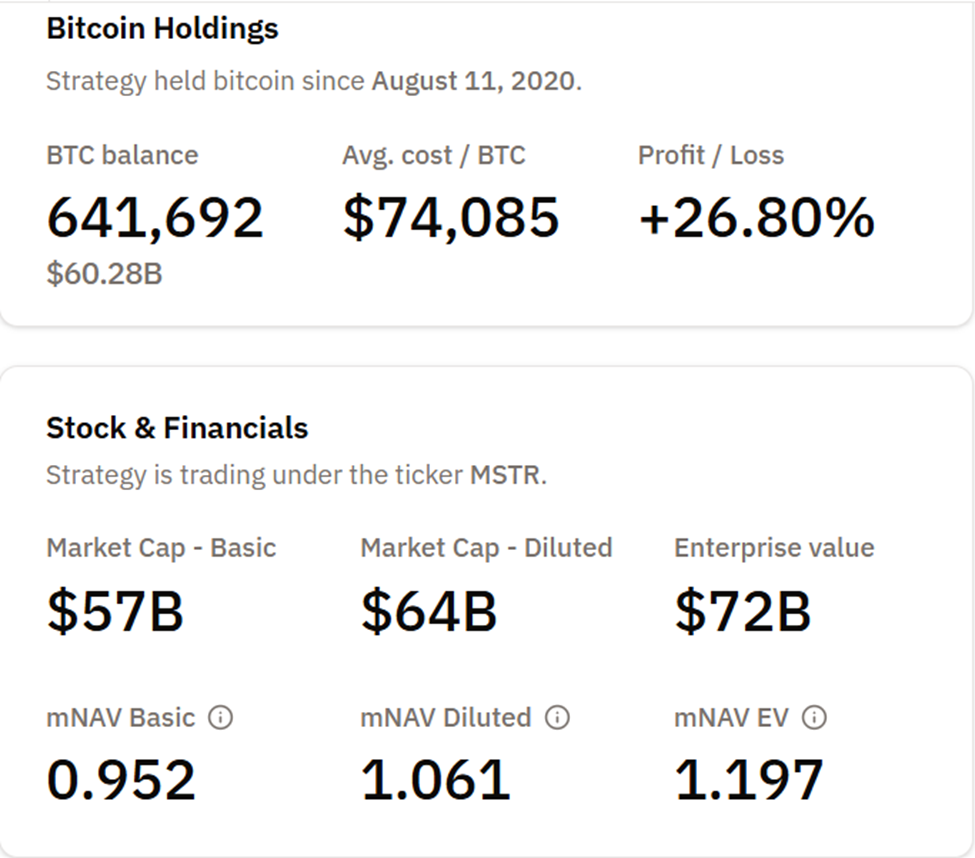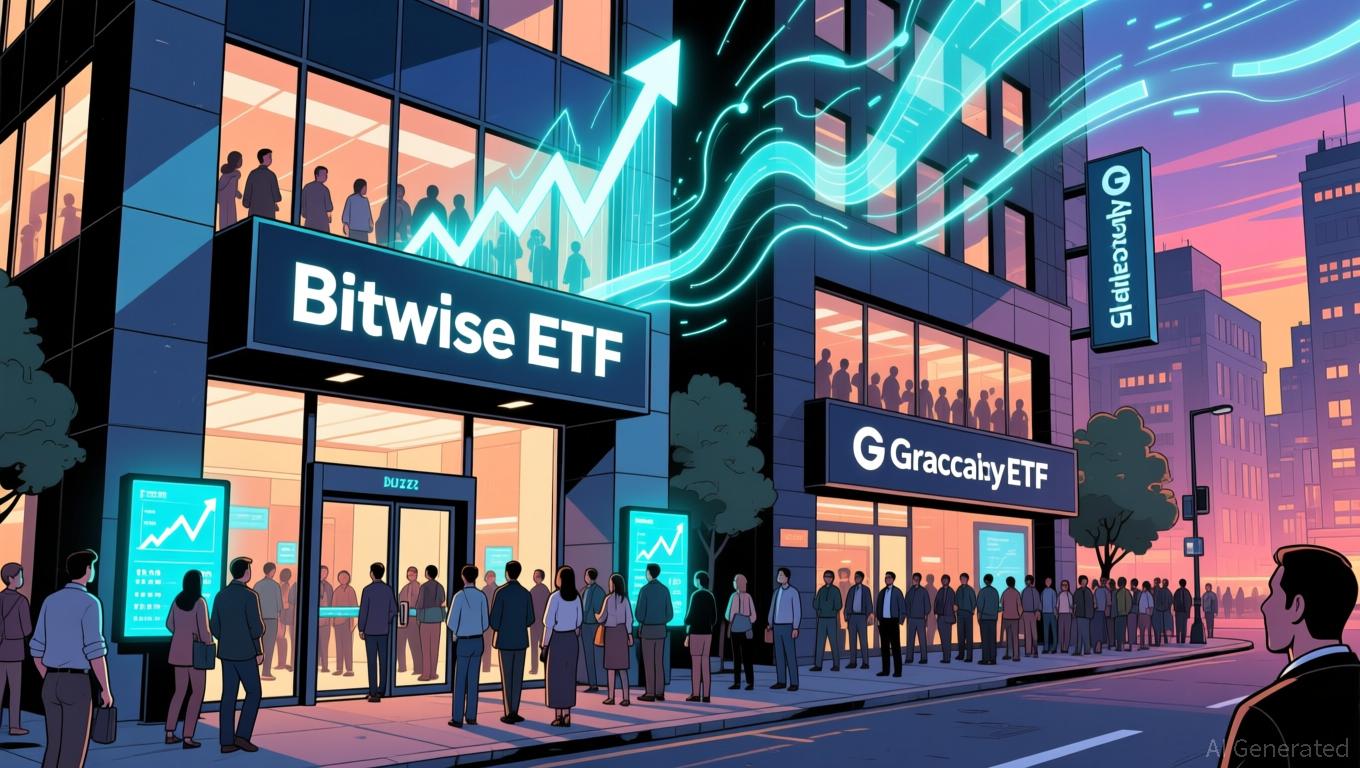Goldbug Peter Schiff Calls MSTR a ‘Fraud’—Analysts Say It Could Still Outperform Bitcoin
Peter Schiff claims MicroStrategy’s preferred-share model is a “fraud,” predicting it could trigger a financing collapse. Yet analysts argue MSTR’s leveraged Bitcoin exposure may still outperform BTC itself, keeping investors sharply divided.
MicroStrategy (MSTR) is at the center of a heated debate, as Peter Schiff labels the company’s business model a fraud. Schiff warns that MSTR’s reliance on high-yield preferred shares and income-oriented funds is unsustainable, predicting that the company could eventually go bankrupt.
Yet analysts and traders argue that MSTR’s strategy may still offer unique leveraged Bitcoin exposure, fueling a split in market sentiment.
Schiff Slams MSTR as ‘Fraud’ but Analysts Argue It May Outrun Bitcoin
According to Schiff, MicroStrategy’s preferred-share financing model could trigger a “death spiral,” with the goldbug terming the firm’s entire business model a fraud.
MSTR’s entire business model is a fraud. Saylor and I will both be speaking at Binance Blockchain Week in Dubai in early December. I challenge @saylor to debate this proposition with me. Regardless of what happens to Bitcoin, I believe $MSTR will eventually go bankrupt. Let’s go!
— Peter Schiff (@PeterSchiff) November 16, 2025
Schiff’s sentiment stems from concerns over MicroStrategy’s business model, which relies on income-oriented funds buying its “high-yield” preferred shares. According to Schiff, those published yields may never actually be paid.
“Once fund managers realize this, they’ll dump the preferreds & MSTR won’t be able to issue any more, setting off a death spiral,” he noted.
MicroStrategy stopped issuing new convertible bonds in February 2025, shifting instead to preferred share offerings (the STR series), which commenced in September 2025.
These preferred shares carry significantly higher interest rates, suggesting investors now demand stronger incentives amid tightening market conditions.
Schiff’s broader argument emphasizes the structural risks inherent in the company’s approach. His bone of contention is that even if Bitcoin rises, MSTR’s debt-fueled model could fail, putting the firm at risk of insolvency.
Crypto trader KillaXBT highlighted a potential Black Swan scenario. According to the analyst, a 50–60% drop in BTC could lead to tighter loan rules, collateral calls, and forced Bitcoin sales, especially if liquidity dries up.
He likened MicroStrategy to a stack of cards built on Bitcoin, noting that leverage amplifies both gains and losses, and a major market correction could strain the company’s financing.
This is my hypothetical scenario regarding the collapse of $MSTR MicroStrategy’s value depends heavily on $BTC. It does well when prices are rising, but becomes very vulnerable if the market crashes.Their debt works fine… until it doesn’t. A 50–60% drop in BTC could trigger…
— Killa (@KillaXBT) November 16, 2025
Analysts Defend MSTR’s Leverage Model
Despite the warnings, some investors view MSTR as a leveraged play on Bitcoin that outperforms standard ETFs (exchange-traded funds). Adam Livingstone argued that MSTR combines 1:1 Bitcoin exposure with annual increases in BTC per share, a form of convexity that compounds returns without liquidation risk.
He illustrated a decade-long hypothetical: $100,000 in IBIT could grow to $1.38 million, whereas the same investment in MSTR could reach $3.56 million. This translates to a 158% outperformance.
Why I like buying MSTR over IBIT:IBIT = 1:1 Bitcoin exposure.MSTR = 1:1 Bitcoin exposure PLUS consistent growth in Bitcoin per share.BTC grows at whatever CAGR the market gives you.MSTR grows BTC holdings per share on top of that.That’s convexity.That’s leverage…
— Adam Livingston (@AdamBLiv) November 16, 2025
Another popular user on X (Twitter), Rohan Hirani, added that MSTR’s premium exists because investors are buying a management team with global capital access capable of acquiring additional BTC efficiently. This is in contrast to simply buying Bitcoin.
He emphasized that MSTR’s 2025 preferred stock offerings represent a pivot toward more sustainable financing, striking a balance between execution risk and long-term upside.
For those new here, here’s why $MSTR should trade at a premium to the value of the Bitcoin it holds.If you put $100 into a Bitcoin ETF, that $100 will always represent the same amount of Bitcoin. Your value only grows if Bitcoin’s price goes up (which is great btw).If you put…
— Rohan Hirani (@rohanhirani_) November 16, 2025
Financing Momentum and Market Dynamics
MicroStrategy has gradually shifted from convertible bonds to higher-interest preferred shares (STR series) since September 2025, reflecting cautious investor sentiment amid tightening markets.
As of this writing, the firm holds 641,692 BTC at an average cost of $74,085 per coin, retaining roughly 26% unrealized gains even if BTC retraces sharply.
 MicroStrategy BTC Holdings. Source:
MicroStrategy BTC Holdings. Source:
Analysts note that MSTR functions as a de facto leveraged Bitcoin ETF, where share value depends heavily on both Bitcoin prices and successful financing.
Despite temporary setbacks, such as the loss of the MSTR Bitcoin premium last week, investors highlight the company’s strategic positioning in digital credit markets as a driver of long-term value. MSTR’s model, while risky, provides double exposure:
- Bitcoin price appreciation, and
- Incremental BTC per share.
MicroStrategy’s hybrid strategy must weather volatility, maintain financing momentum, and continue outpacing Bitcoin exposure to assuage skeptical concerns. Nonetheless, the company remains a notable example in corporate Bitcoin strategy, striking a balance between leveraged opportunities and systemic risk.
Disclaimer: The content of this article solely reflects the author's opinion and does not represent the platform in any capacity. This article is not intended to serve as a reference for making investment decisions.
You may also like
Solana Latest Updates: Bitwise's Solana ETF Overtakes Grayscale by Offering Staking and Reduced Fees
- Bitwise's Solana ETF (BSOL) attracted $580M in three weeks, outpacing Grayscale's $24.4M inflows for its competing fund. - BSOL's 0.20% fee and staking integration differentiate it, enabling yield generation on Solana holdings for investors. - The fund's 14-day consecutive inflows highlight institutional confidence, supported by a $222.9M seed investment versus Grayscale's $102.7M. - Growing institutional adoption of crypto-native products signals shifting investor strategies toward blockchain exposure t

PENGU Experiences a Steep 30% Price Decline Within a Week: Liquidity Disruptions and Speculative Pressure in DeFi Platforms
- PENGU's 30% price drop highlights liquidity shocks and speculative overhang in DeFi markets. - Uniswap's 2025 CCA model aims to stabilize token launches but may worsen speculation for non-CCA tokens like PENGU. - DeFi Development Corp's $112.5M funding and IO DeFi's sustainability-focused innovations reshape capital flows and investor priorities. - Protocol innovations like CCA create short-term volatility while long-term stability depends on liquidity mechanisms and environmental alignment.
PENGU Price Forecast: Managing Immediate Fluctuations and Speculative Trends in New Altcoins
- PENGU token plummeted 30.5% recently due to Bitcoin dominance and aggressive shorting near $0.0157. - Technical indicators show potential support at $0.01454, but whale outflows ($66.6M) and bearish social sentiment persist. - Mixed on-chain signals include short-term bullish momentum vs. long-term selling pressure and weak NFT floor prices. - Investors face high-risk speculation: PENGU's survival depends on buyers defending key levels amid structural bearish fundamentals.
Injective’s DeFi repurchase strategies reflect the confidence-building actions commonly seen in traditional financial markets
- Injective Protocol (INJ) will launch community buybacks starting Nov 16, funded by treasury reserves to reward long-term tokenholders. - The move mirrors traditional market trends like Niagen's $10M buyback and New Mexico's 30-year dividend streak to stabilize investor confidence. - On-chain auctions will ensure transparency, aligning with DeFi's recovery from regulatory uncertainties and CNB

